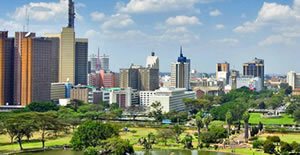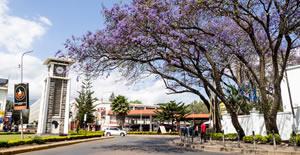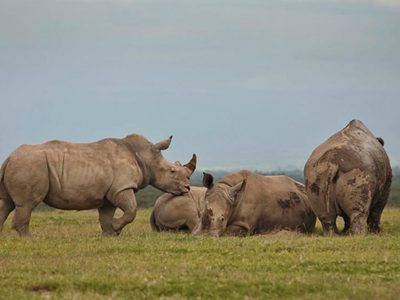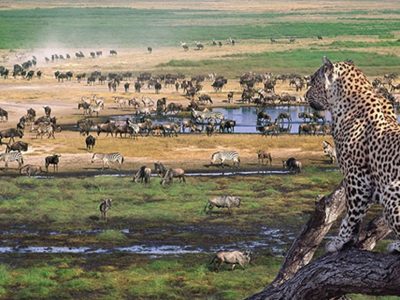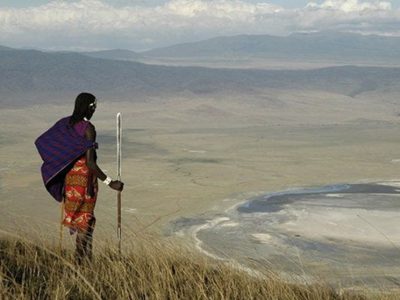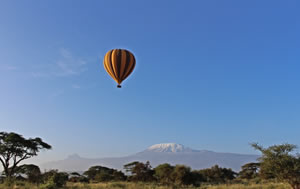Wildlife Kenya Safaris recommends 4-5 people per Safari Van/Safari Jeep to guarantee a window seat and greater comfort.
Customer Services
We offer our clients free safari/tour information, safari briefing and Flight reconfirmation. We also organise Kenya and Tanzania Safari/tours, Hotels, Lodges and Camps bookings at VERY Competitive rates.
Kenya/Tanzania Visas Requirements
Kenya Visas may be obtained on arrival.
Visas are required for all visitors to Kenya, EXCEPT for Nationals of the following countries who do NOT need a Kenya visa:
Bahamas, Bangladesh, Barbados, Botswana, Brunei-Darussalam, Cyprus, Dominica, Ethiopia, Fiji Islands, Gambia, Ghana, Grenada, Jamaica, Kiribati, Lesotho, Malawi, Maldives, Mauritius, Namibia, Nauru, Papua New Guinea, Samoa, San Marino, Seychelles, Sierra Leone, Singapore, Solomon Islands, St Lucia, St Vincent & The Grenadines, Swaziland, Tanzania, Tonga, Turkey, Tuvalu, Uganda, Uruguay, Vanuatu, Zambia, Zimbabwe.
Nationals of all other countries require a visa. Visas can be obtained on arrival at the airport in Nairobi or Mombasa, EXCEPT for citizens of the following countries who DO need to have a visa prior to arrival in Kenya:
Afghanistan, Armenia, Azerbaijan, Senegal, Somalia, Iran, Lebanon, Iraq, Syria, Libya, Mali, Sudan, Nigeria, Yemen, Cameroon, Pakistan, Tazikstan, North Korea.
For other nationals, visas can be obtained at the airport or Border Point upon arrival in Kenya/Tanzania, or from the Kenyan/Tanzania Embassies / High Commissions abroad prior to departure. Currently the visa fee is US$50. Please note that if you obtain the visa on arrival at the airport, payment should be made in US$ cash banknotes and the immigration officers do not accept credit cards or travellers’ cheques, so you will need to have the exact amount in cash. The visa is valid for three months, allowing return into Kenya from Tanzania or Uganda at no extra fee.
Climate in Kenya/Tanzania
Because the weather in Africa is often unpredictable – the rains can sometimes be heavy one season, sometimes they can fail altogether – this information is a rough guideline only
Kenya’s/Tanzania’s climate varies across the country, from the tropical humidity of the coast, the dry heat of the savannah or semi-arid areas and the cool air of the highlands. Temperatures in these areas are fairly constant year round with an average of 27°C (80°F) at the coast, 21°C to 27°C (70°F to 80°F) in the hinterland, while in Nairobi and the highlands over 5,000 ft, the daytime temperatures normally range between 19°C and 24°C (66°F to 75°F).
Most parts of the Kenya/Tanzania experience two rainy seasons: the ‘long rains’ falling over a ten week period between April and June, and the ‘short rains’ over a five week period between November and December. The rain tends to fall mainly at night and is usually a short and heavy tropical downpour.
Rain may occasionally fall outside of the normal rainy seasons. In the highland areas north of Nairobi it may get chilly at night or in the early mornings – especially June, July, and August when temperatures are cooler – so it is recommended that visitors pack some items of warm clothing.
Travel Insurance
We strongly recommend you have travel insurance in place as at time unexpected events or accidents can leave you with cancelled plans and significant unbudgeted expenses.
Health Advice for Kenya/Tanzania
There are no compulsory vaccinations required for entry to Kenya unless you are arriving from an area infected with Yellow Fever, in which case a Certificate of Inoculation against Yellow Fever is required from Travellers older than one year. Visitors coming from other countries in Africa where Yellow Fever may occur, including Tanzania and Zanzibar, require a Yellow Fever certificate.
The other recommended vaccinations are Typhoid, Hepatitis and Polio, and anti-malarial medication is essential. Anti-malarial drugs should be taken prior to arrival and should be continued for 4 weeks after leaving Kenya. It is also advisable to try and avoid mosquito bites by using repellent and by wearing suitable cover-up clothes in the evening.
There are good hospitals in the main towns of Kenya while the rural areas have small health centers where one can get basic first aid. It is absolutely essential that all visitors carry some form of medical insurance to cater for any eventualities. There is an excellent Flying Doctor service in Kenya in the event of a medical emergency, while on safari away from the urban centre. Hotels and lodges supply clean drinking water but whenever in doubt, please drink only bottled mineral water (which is available in hotels and safari camps). Drinking water from the tap is not encouraged.
Kenya Tourist Security & Helpline
The Kenyan tourist circuit tends to be very safe for tourists. This has been due to concerted efforts by stakeholders to ensure that visitors enjoy their stay without any security concerns. There was however a period 3 to 4 years ago when insecurity on some of the circuits was of concern, but the underlying factors have since been effectively addressed.
The tourism industry in Kenya takes visitor safety very seriously and considers all aspects of the tourist’s stay in Kenya. For this reason, the industry created a Safety and Communication Centre under the auspices of the Kenya Tourism Federation (KTF), which is operated 24hrs a day to monitor visitor safety. The Kenya Tourism Federation represents the leading tourism trade associations.
The Safety and Communication Centre is manned by well-trained KTF staffs that are at hand to attend to any issues of concern to tourists. These include security, health, road conditions, travel advisories and updates etc.
There is a 24hr TOURIST HELPLINE (020 – 604767) where one can seek assistance in case of need. Wildlife Kenya Safaris is connected to the Centre by HF radio which makes access while on safari very easy.
Safari Packing List
Soft bags (that are lockable) are preferable to large rectangular suitcases. On the Safarilink, Mombasa Air, Bluesky and Airkenya light aircraft flights the weight of luggage that can be checked in is limited to 15kgs. We will be glad to store any excess luggage (bags must be locked) at our head office at no extra charge.
Documents
- Passports (with visa entries)
- Health cards (vaccination certificate)
- Airline tickets
- Cash & Travellers’ Cheques
- Separate record of T/Cheque numbers
- Credit Cards (VISA, MasterCard and/or American Express)
- Photo copy of passport/visas/Insurance papers
Clothing
The list given below is a basic indication of what you should bring. We recommend that you bring khaki and green coloured clothing. Bright colours should be avoided while on safari (fine for the coast and Nairobi); camouflage clothes are illegal because they are worn by local soldiers.
- Trainers
- Flip flops
- Hat
- Windbreaker/Jacket
- Pullover Sweater/Sweatshirt
- 2 pc. safari pants (or chinos)
- 2 pc. safari shorts
- 4 pair sport sock
- 3 short sleeve shirts
- 1 long sleeve shirt
- 2 t-shirts
- Pyjamas
- Swim Trunks
- 1 pair casual slacks (men) evening outfit (women) – for evening
- Bras (sports type) – women
- 6 set underwear
- Belt
Toiletries & Medicine
- Malaria prophylaxis
- Prescription drugs (also bring the generic names for these drugs, good idea to pack 2 separate lots)
- Motion sickness pills
- Insect repellant (containing DEET for mosquito’s)
- Sun Screen (SPF 15 or higher)
- Lip Balm
- Shampoo/Conditioner
- Deodorant
- Toothpaste / Toothbrush
- Dental Floss
- Hair Brush / Comb
- Electric / Hand Razor
- Emery Boards
- Tweezers
- Hand Lotion
- Fem. Hygiene Supplies
Wear sunscreens and cover up during the hottest time of day – between 11H00 and 15H00.
Other Supplies
- Sunglasses / Case
- Prescription glasses (and a spare pair)
- Flashlight (small with extra batteries)
- Batteries (for electronic equipment)
- Converter plug set if needed (the electricity supply is 240 Volt, 50 Hz). Sockets are usually 3 pin and are of the square variety.
- Alarm clock
- Money pouch
- Pocket Knife (not in hand luggage)
- Binoculars (very important, one per person)
- Day pack
- Favourite road snacks
- Books / Magazines / Journal
- Small Sewing Kit
- Small Scissors (not in hand luggage)
- Pen/paper
Safari Photography Equipment:
Each person is recommended to have their own 35mm or 5+ mega pixel digital camera. It is best to have a variety of lenses to accompany the camera; a normal lens and a telephoto of 200mm minimum. If you prefer close ups or for the best images of birds, a 400mm or more lens is suggested, although not necessary and other lenses can also be brought, such as wide angle or macro. We do not advise on bringing cumbersome flash units or tripods but we do advise that at least one member of your group has a video camera available.
Film: for the best results filming, we suggest using film speed 400 ASA. In any low light conditions, including early mornings and late afternoons, we recommend a faster film of ASA/ISO 200, 400 or even 1000. For good light conditions, film speeds ASA/ISO 50-100 are suited.
Film is more expensive here and there is not as much variety, so you may not be able to get the film you usually use. For this reason we urge you to bring as much as you can to avoid running out! As a general guide allow one or two rolls of 36-exposure film for still photography and expect to shoot around 30 minutes of video a day. Our vehicles have cigarette lighters so remember to bring lead that can link your video equipment to the car when needed. Bring plenty of batteries and charger so you don’t run out!
Cameras get dirty when out filming for a day so ensure you have the correct cleaning equipment. A blower brush and soft chamois will clean well but there is small compressed air canister to blow dust off cameras now available.
Each person needs their own pair of binoculars as they are essential to see the birds and animals in the distance. The best size is 7×42 and they don’t need to be expensive but bird watchers should bring a Spotting Scope.
If you buy a new camera for your safari, make sure you are familiar with it before departure. Practice at home to ensure you’re comfortable with all the various settings and techniques.
Equipment List for Safaris
- Camera
- Telephoto lenses (200-400mm)
- Lens cleaning equipment
- Extra batteries
- Battery charger (12V or 220A for video cameras)
- Film (double what you think you’ll need)
- Camera bag
- Lead bag for film
- Zip lock bags
- Beanbag
- A notebook to record your days adventures while it’s still fresh!
Photography Tips
- The best way to ensure that you take a brilliant close up is to use a long lens with aperture set at f8 focussing on the animals eyes to get the whole face in focus.
- When you’re not focussing on a particular shot, have your camera set to f8 with the servo mode set to aperture priority so you are always ready for the little moments.
- Make sure you bracket you shots so you cover all possible options. Generally this is a portrait, landscape with the environment in view and a close up with detail.
- If the sun is bright, use a low contrast film. If it’s dull or cloudy use a high contrast.
- Keep your shots varied of both portrait and horizontal.
- Unless you are using a panning technique, moving animals will require a shutter speed of at least 1/125 and birds in flight 1/500.
- Take time to position your shots. Look at the surroundings for any potential distractions and the best shots.
- The minimum focal length lens for mammal photography is 300mm and for birds 500mm.
- To give the appearance of the animal moving, don’t centre your shots. Leave space left, right, above or below for the animal to move into.
- To create dramatic photos, vary where you take your shots. Take some from the roof hatch, some from the windows and, where safe, get out of the vehicle to get on eye level.


